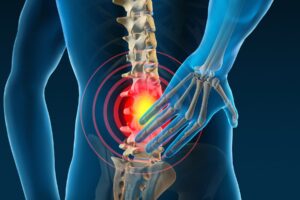Can hemorrhoids cause stomach and back pain?
There are commonly three types of hemorrhoids, and all of them cause various types of pain. Can hemorrhoids cause stomach and back pain? This is one of the most common questions that people usually ask from us who are suffering from piles, and that is the sole reason we have decided to address them once at all.
This article will give you a brief idea of what hemorrhoids are and the prevention you can adapt. Furthermore, we will also explain various types of hemorrhoids and what are there symptoms and causes. Well, if that sounds interesting to you, then let us begin.
Can hemorrhoids cause stomach and back pain?
Yes, hemorrhoids can cause stomach and back pain. Different pains indicate different types of hemorrhoids and for the sake of your better understanding, let us discuss each of them one by one.

External Hemorrhoids
These are located just under the surface of the skin surrounding your anus. The following are examples of signs and symptoms:
- Itching or discomfort in the area around your anal opening
- Discomfort or discomfort
- Swelling in the area surrounding your anus
- Bleeding
Internal Hemorrhoids
Internal hemorrhoids are hemorrhoids that are located inside the rectum. They are typically not visible or feelable and seldom cause pain or discomfort. However, straining or discomfort when passing feces might result in the following symptoms:
- During bowel motions, there is no discomfort or pain. You may discover minor quantities of bright red blood on your toilet paper or in the toilet.
- Hemorrhoid pushing through the anal orifice (also known as a prolapsed or protruding hemorrhoid) may cause discomfort and pain.
Thrombosed hemorrhoids
The formation of a clot (thrombus) in external hemorrhoid might result in the following complications:
- Unbearable pain
- Swelling \Inflammation
- You have a firm lump near your aneurism.
Causes
Under strain, the veins surrounding your anus tend to expand and protrude, causing them to enlarge and bulge. Hemorrhoids may develop as a result of increased pressure in the lower rectum, which can be caused by:
- Effortful bowel motions are accompanied by squeezing.
- Sitting on the toilet for lengthy periods is not recommended.
- Having diarrhea or constipation regularly.
- Obesity is a medical condition.
- The fact that you are pregnant Having an anal intercourse
- Consuming a diet that is poor in fiber
- The heavy lifting regularly
Complications
Hemorrhoids may cause a variety of complications, the most common of which are as follows:
- Anemia. Anemia is a condition in which you don’t have enough healthy red blood cells to transport oxygen to your cells, which may occur in rare cases due to persistent blood loss from hemorrhoids.

- Hemorrhoid has been strangulated. In some instances, if the blood flow to an internal hemorrhoid is interrupted, hemorrhoids may become “strangulated,” resulting in excruciating discomfort.
- A blood clot has formed. A chunk may develop in hemorrhoids on rare occasions; however, it is not common (thrombosed hemorrhoid). Although it is not harmful, it may be excruciating and may need lancing and drainage in rare cases.
When to see a doctor?
If you are experiencing bleeding during bowel movements, back pain, and stomach pain, or if you have hemorrhoids that have not improved after a week of home treatment, see your doctor immediately.
Never presume that hemorrhoids cause rectal bleeding until you have experienced changes in your bowel habits or noticed changes in the color or consistency of your feces. The occurrence of rectal bleeding may be caused by various disorders, including colorectal cancer and anal cancer.
